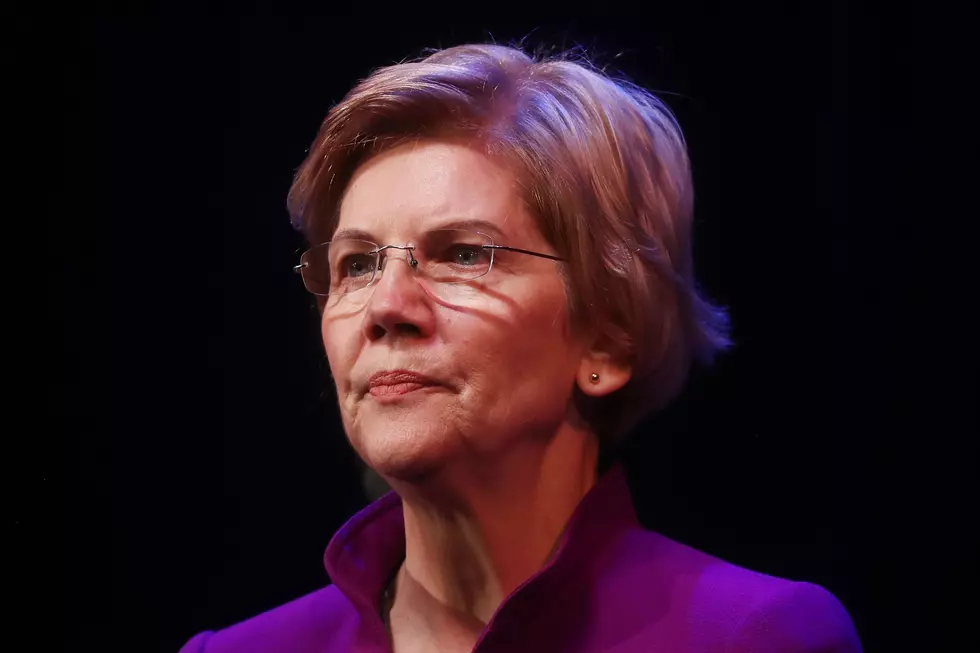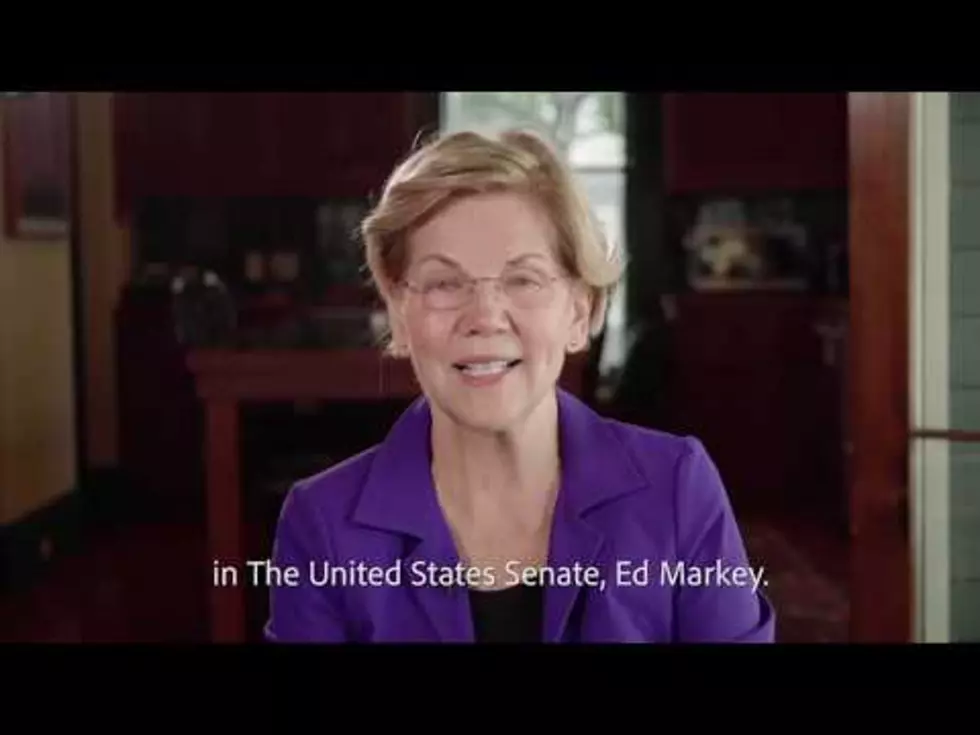
Warren Reintroduces Climate Risk Disclosure Act
WASHINGTON, D.C. — U.S. Senator Elizabeth Warren (D-Mass.) has reintroduced legislation on Capitol Hill that would require public companies to disclose “critical information” regarding their exposure and susceptibility to climate-related risks.
In a release, Warren says the bill, called the Climate Risk Disclosure Act, will help investors appropriately assess climate-related risks, accelerate the transition from fossil fuels to cleaner and more efficient energy sources, and reduce the risks of both environmental and financial catastrophe. The Massachusetts Senator says it builds on the work of former Vice President Al Gore, who has warned that ignoring the risks of climate change is producing a "carbon bubble that will have severe economic consequences.”
Warren claims recent data shows that a major climate-related disaster could trigger severe economic impacts, citing a report released last month by Moody's Analytics that argues climate change could create tens of trillions of dollars in damages to the world economy by the year 2100, and will "universally hurt worker health and productivity."
"It's time to wake up and fight back against giant corporations that want to pollute our environment and ask taxpayers to clean up the mess," said Warren.
"I'm reintroducing the Climate Risk Disclosure Act to give investors, and the American public, the power to hold corporations accountable for their role in the climate crisis."
To reach the goals of the Paris Agreement, energy experts estimate that the global community must dramatically reduce fossil fuel consumption over the next 30 years, with nearly 0% of electricity generated from coal and about 8% of electricity generated from gas by 2050, while also employing carbon dioxide removal activities.
In recognition of the findings in a report released by the Intergovernmental Panel on Climate Change (IPCC), the legislation would also link disclosures to a scenario where global temperatures are prevented from rising more than 1.5 degrees above preindustrial levels. The IPCC report found that "with clear benefits to people and natural ecosystems, limiting global warming to 1.5°C compared to 2°C could go hand in hand with ensuring a more sustainable and equitable society."
"Climate change poses significant financial risks across every sector of our economy, and the public deserves transparency and accountability from the corporations we do business with. With clear and consistent climate risk disclosures, Americans can invest in a healthy, safe, clean energy future," said Senator Edward Markey (D-Mass.).
If passed, the Climate Risk Disclosure Act would direct the SEC, in consultation with climate experts at other federal agencies, to issue rules within one year that require every public company to disclose:
Its direct and indirect greenhouse gas emissions; the total amount of fossil-fuel related assets that it owns or manages, how its valuation would be affected if climate change continues at its current pace or if policymakers successfully restrict greenhouse gas emissions to meet the 1.5 degrees Celsius goal, and its risk management strategies related to the physical risks and transition risks posed by the climate crisis.
The Climate Risk Disclosure Act also directs the SEC to tailor these disclosure requirements to different industries and to impose additional disclosure requirements on companies engaged in the commercial development of fossil fuels. The legislation will help the market appropriately assess the risk of climate change which will help push private actors and government actors to act more decisively to address the climate crisis and promote financial stability without costing a penny of taxpayer money.
The legislation is endorsed by Vice President Al Gore, and over 20 organizations: 350.org, American Family Values, Anthropocene Alliance, As You Sow, Center for International Environmental Law, Ceres, Climate Hawks Vote, Dwight Hall Socially Responsible Investment Fund, Friends of the Earth, Gasp, Global Witness, Greenpeace USA, Institute for Agriculture and Trade Policy, League of Conservation Voters, Natural Investments LLC, Sierra Club, Sisters of St. Francis of Philadelphia, the Sustainability Group of Loring, Wolcott & Coolidge, Trinity Health, Union of Concerned Scientists, Vert Asset Management, and Mercy Investment Services.
Warren supports declaring climate change an emergency, is an original co-sponsor of the Green New Deal Resolution, and is the lead sponsor of a bill to require the Department of Defense to adapt its infrastructure and operations to address climate change and improve energy efficiency in order to strengthen military readiness.
The Climate Risk Disclosure Act is cosponsored by Senators Brian Schatz (D-Hawaii), Sheldon Whitehouse (D-R.I.), Chris Van Hollen (D-Md.), Amy Klobuchar (D-Minn.), Kirsten Gillibrand (D-N.Y.), Michael Bennet (D-Colo.), Richard Blumenthal (D-Conn.), Cory Booker (D-N.J.), Edward J. Markey (D-Mass.), Jeff Merkley (D-Ore.), Kamala Harris (D-Calif.), Tina Smith (D-Minn.), Dianne Feinstein (D-Calif.), Tom Carper (D-Del.), and Senate Minority Leader Chuck Schumer (D-N.Y.). U.S. Representative Sean Casten (D-Ill.) introduced the House companion legislation, along with U.S. Representatives Matthew Cartwright (D-Penn.) and Alexandria Ocasio-Cortez (D-N.Y.).
More From WBSM-AM/AM 1420


![Is Change A-Comin’ for the Dems? [PHIL-OSOPHY]](http://townsquare.media/site/518/files/2019/08/GettyImages-968569844.jpg?w=980&q=75)




![Beth Lindstrom Insists Warren Should Apologize [OPINION]](http://townsquare.media/site/518/files/2018/08/Beth-Lindstrom.png?w=980&q=75)

